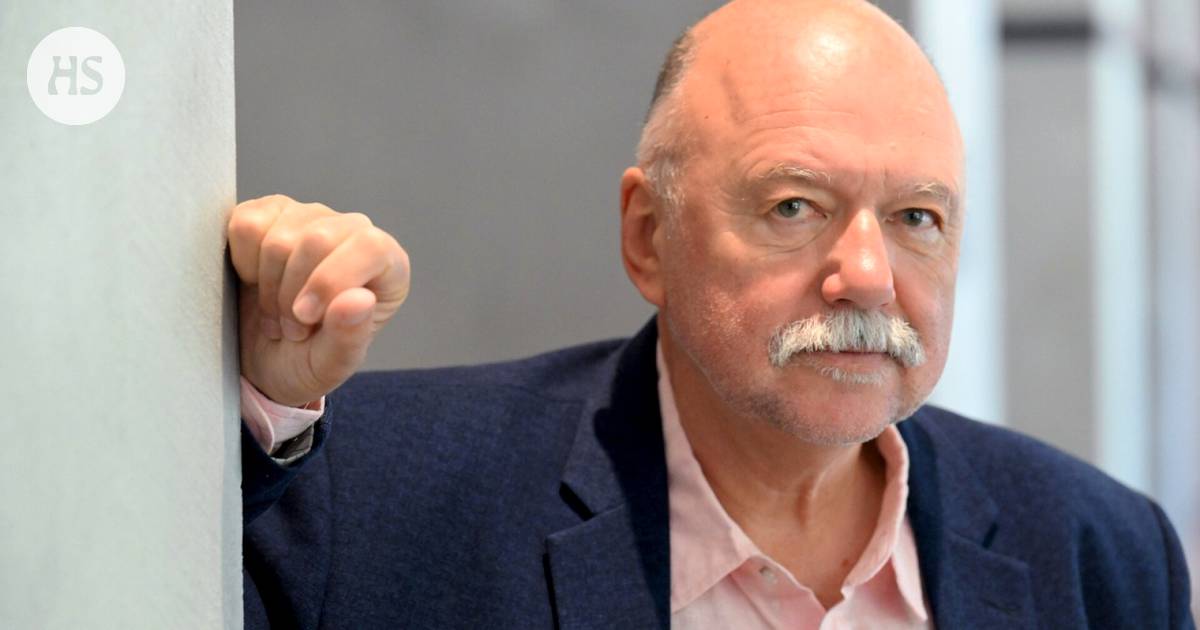Book review|Fate holds sway in Andrei Kurkov’s darkly humorous hitman novel.
A novel
Andrei Kurkov: A Dead Man’s Friend (Милый друг, товарищ покойника). Finnish Riku Toivola. Big Dipper. 129 pp.
At thirty Tolja is doing poorly. His wife cheats on him and life is miserable in Kiev, freed from the yoke of Soviet power. There is no work and sitting in a cubicle is boring. An old school friend advises a cheap contract killer to take care of his wife’s lover, but Tolja decides to kill himself.
Infused with the black humor typical of Ukrainian literature A dead man’s friend is not part of Andrei Kurkovin to the most famous novels, but its loose narrative and macabre setting have spread as a film and in numerous translations.
Kurkov, who writes in Russian, has become one of the most visible representatives of Ukrainian literature in Western countries and non-grataksi person in Russia.
To begin with however, the novel, published in 2001, is not particularly political.
Tolja, who gave himself a death sentence, unexpectedly gets a job. He presents the secret lover of the civil servant’s wife in court so that the civil servant can get a divorce from his wife. A thousand dollars for an easy gig is a lot, and things are starting to happen in Tolja’s life.
Fate intervenes with all its might, and the traditional sitting in the kitchen with a glass of vodka finally has an alternative. Maybe killing yourself is a bad idea after all?
It’s harder when the wife leaves and leaves the apartment in Tolja. And there is money.
Aki Kaurismäki the world of cinema does not only come to mind I hired a Contract Killer-film (1990) but also about the laziness, drinking coffee and the fact that Tolja regrets not smoking. Burning would have brought a glimmer of joy to the lingering existence.
You can only be freed from Dostoyevsky’s contemplation of guilt by surrendering to the toss of fate. Thus, Tolja follows paths in his life that a Westerner would call random, but someone else would call them predetermined.
”
It is absurd that Ukrainian literature is properly discovered in other countries only because of the war.
Kurkov’s the narrative is relaxed, but the post-Soviet environment is cold. Life works out somehow, even when things don’t work out. Lemon vodka is drunk in the kitchen and in the small shop. We eat chocolate with the nice happy girl in the neighborhood until we fall in love with it.
Small moments of life, French fries, flavored vodka or thin, amber-colored pieces of salami bring life. In Tolja’s world, small tangible pleasures were the essence of life, and life should not be over-planned.
“It occurred to me that you could only really taste the riches of life if you worked in a carefully equipped boutique or belonged to someone who worked in such a close circle.”
When Tolja gets money, he doesn’t really know how to use it. Champagne and chocolate. My friend Dima recommends lending money to usurers, who will forward it with a good margin. However, Tolja is not a progressive by nature.
In short in the novel, the events follow at a bewildering pace, even though all the time we are just sitting around. The corpse ends up being someone other than Tolja.
“I thought that getting to know a stranger’s apartment should always start from the kitchen,” a man thinks while taking care of the child of a man he met half-accidentally. The kitchen is the heart of a Slavic home, a symbol of the fact that Tolja has accidentally invaded someone else’s life. Or is it determined by fate?
The dialogue between the high and the low is a strong tradition of Ukrainian and Russian literature. The background music varies from the Russian pop of the 90’s Car-Men to a baroque composer Archangel Corelliin. The feeling of love is compared to french fries.
The dead man’s friend the other basic tune is the traditional border crossing of the eastern Slavic cultures of Europe’s eastern border. Impulsive decisions seem moral to Tolja.
Ethical solutions arise internally and intuitively, not through reasoning. As if a person is not just thrown into the world, but has an assigned role that he plays whether he wants to or not.
Finnish translator Riku Toivola seems to have reached the trampling of everyday contrasts well in his translation. The variations of tragicomism and indifference are not easily transferred from one language to another, but must be given a rhythmic line.
All in all, it is absurd that Ukrainian literature is properly discovered in other countries only because of the war. Andrei Kurkov continues the long absurd line of Ukrainian literature in his everyday macabre From Nikolai Gogol Mikhail Bulgakovin and Yuri from Andruh’ovych Vasyl Koželjankoon.
Deep in the black soil of grotesque humor and absurdities.
Andrei Kurkov will perform at the Helsinki Lit literary event on Friday, May 24.
